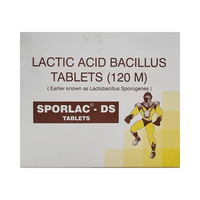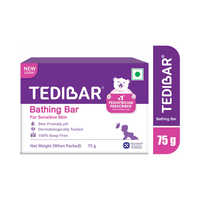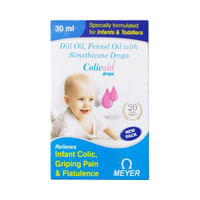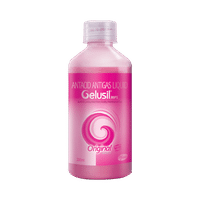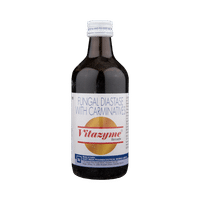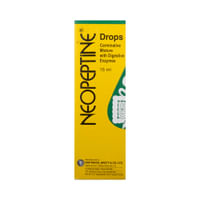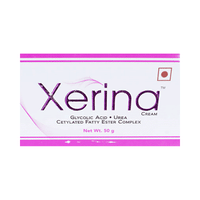Cloretamil-G Cream
Rs.18.60for 1 tube(s) (25 gm Cream each)
food interaction for Cloretamil-G
alcohol interaction for Cloretamil-G
pregnancy interaction for Cloretamil-G
lactation interaction for Cloretamil-G
medicine interaction for Cloretamil-G
food
alcohol
pregnancy
lactation
medicine
No interaction found/established
No interaction found/established
Cloretamil-G Cream is unsafe to use during pregnancy as there is definite evidence of risk to the developing baby. However, the doctor may rarely prescribe it in some life-threatening situations if the benefits are more than the potential risks. Please consult your doctor.
CONSULT YOUR DOCTOR
Cloretamil-G Cream is probably safe to use during breastfeeding. Limited human data suggests that the drug does not represent any significant risk to the baby.
SAFE IF PRESCRIBED
No interaction found/established
SALT INFORMATION FOR Cloretamil-G
Clobetasol(0.05% w/w)
Uses
Clobetasol is used in the treatment of allergic skin conditions.
How it works
Clobetasol is a steroid. It works by blocking the production of certain chemical messengers that make the skin red, swollen and itchy.
Common side effects
Skin atrophy, Telangiectasia, Skin irritation, Dry skin, Stretch marks, Cushing syndrome, Suppression of adrenal gland function, Posterior subcapsular cataract, Increased intraocular pressure, Skin rash, Scaling, Induration (hardening of a normally soft tissue or organ), Lichenification, Exacerbation of psoriasis, Plaque elevation, Excoriation
Gentamicin(0.1% w/w)
Uses
Gentamicin is used in the treatment of bacterial infections.
How it works
Gentamicin is an antibiotic. It stops bacterial growth by preventing synthesis of essential proteins required by bacteria to carry out vital functions.
Common side effects
Hearing loss, Joint pain, Headache, Breathlessness, Vomiting, Nausea, Fever, High blood pressure, Edema (swelling), Thrombophlebitis, Confusion, Depression, Drowsiness, Lethargy, Myasthenia gravis, Numbness, Paresthesia (tingling or pricking sensation), Peripheral neuropathy (tingling and numbness of feet and hand), Seizure, Vertigo, Hair loss, Urticaria, Decreased calcium level in blood, Weight loss, Clostridium difficile associated diarrhea, Decreased appetite, Enterocolitis, Urinary casts, Low urine output, Protein in urine, Renal toxicity, Agranulocytosis (deficiency of granulocytes in the blood), Anemia (low number of red blood cells), Hepatomegaly (enlarged liver), Increased liver enzymes, Hypersensitivity, Muscle cramp, Muscle weakness, Visual disturbance, Ringing in ear, Decreased creatinine clearance, Respiratory depression, Increased reticulocytes, Low blood platelets, Pulmonary fibrosis, Enlarged spleen, Laryngeal edema, Gastrointestinal bleeding
SUBSTITUTES FOR Cloretamil-G
42 Substitutes
42 Substitutes
Sorted By
 Rs. 22.70pay 98% more per gm of Cream
Rs. 22.70pay 98% more per gm of Cream Rs. 29pay 95% more per gm of Cream
Rs. 29pay 95% more per gm of Cream Rs. 44.77pay 98% more per gm of Cream
Rs. 44.77pay 98% more per gm of Cream Rs. 34.25pay 52% more per gm of Cream
Rs. 34.25pay 52% more per gm of Cream Rs. 39.12pay 71% more per gm of Cream
Rs. 39.12pay 71% more per gm of Cream
Expert advice FOR Cloretamil-G
- Clobetasol is used to treat redness, swelling, itching, and discomfort of various skin conditions.
- It should be applied to the affected areas as a thin film, two times daily, or as advised by your doctor.
- Do not use it more often or for longer than advised by your doctor.
- Do not cover the area being treated with airtight dressings such as bandages unless directed by a doctor, as this may increase the risk of side effects.
- If you think the area of skin you are treating has become infected you should stop using Clobetasol and consult your doctor.
- Consult your doctor if your skin condition has not improved after four weeks of treatment. Do not use it for more than 4 consecutive weeks at a time.
Frequently asked questions FOR Cloretamil-G
Clobetasol
Q. Can Clobetasol be used for a long time?
No, Clobetasol should not be used for a long time. It is generally prescribed for 2 consecutive weeks only. However, the treatment can be longer for chronic (long-term) inflammatory conditions. Consult your physician before using this medication.
Q. Does Clobetasol cause severe skin reactions?
Severe skin reactions are quite rare with Clobetasol. Clobetasol is an anti-inflammatory drug which is used to treat skin diseases, skin reactions and eczemas. However, skin reactions can occur in a person who is hypersensitive to Clobetasol. It is important to leave the affected area open after applying Clobetasol as using occlusive dressings (air- and water-tight dressing) can lead to skin reactions. The medicine may not itself cause a reaction but the added excipients with the medications can lead to a reaction in some cases. Inform your doctor immediately in case you encounter any skin reactions.
Q. Can Clobetasol be used on the face?
No, Clobetasol should not be used on face. Along with that, its use should be avoided in other areas like the axillae (armpits), groin and if there is atrophy (wasting away of tissues) at the treatment site. However, in certain circumstances, the doctor may prescribe Clobetasol only when considered necessary. It should be used only after consultation with your physician. and if possible, the application on face should be limited to a maximum of 5 days.
Gentamicin
Q. What is Gentamicin? What is it used for?
Gentamicin is an antibiotic used to treat bacterial skin infections. It may also be used to treat infected cuts and wounds. Gentamicin stops the growth of bacteria, which helps to resolve the symptoms.
Q. Is Gentamicin effective?
Gentamicin is effective if used in the dose and duration advised by your doctor. Do not stop taking it even if you see improvement in your condition. If you stop using Gentamicin too early, the symptoms may return or worsen.
Q. How to use Gentamicin?
Before using Gentamicin, clean and dry the affected area. Gently and thoroughly massage it into the skin. Be careful not to get the medication in your eyes or mouth. If Gentamicin gets in your eyes accidentally, wash with plenty of water and call your doctor if your eyes are irritated.













